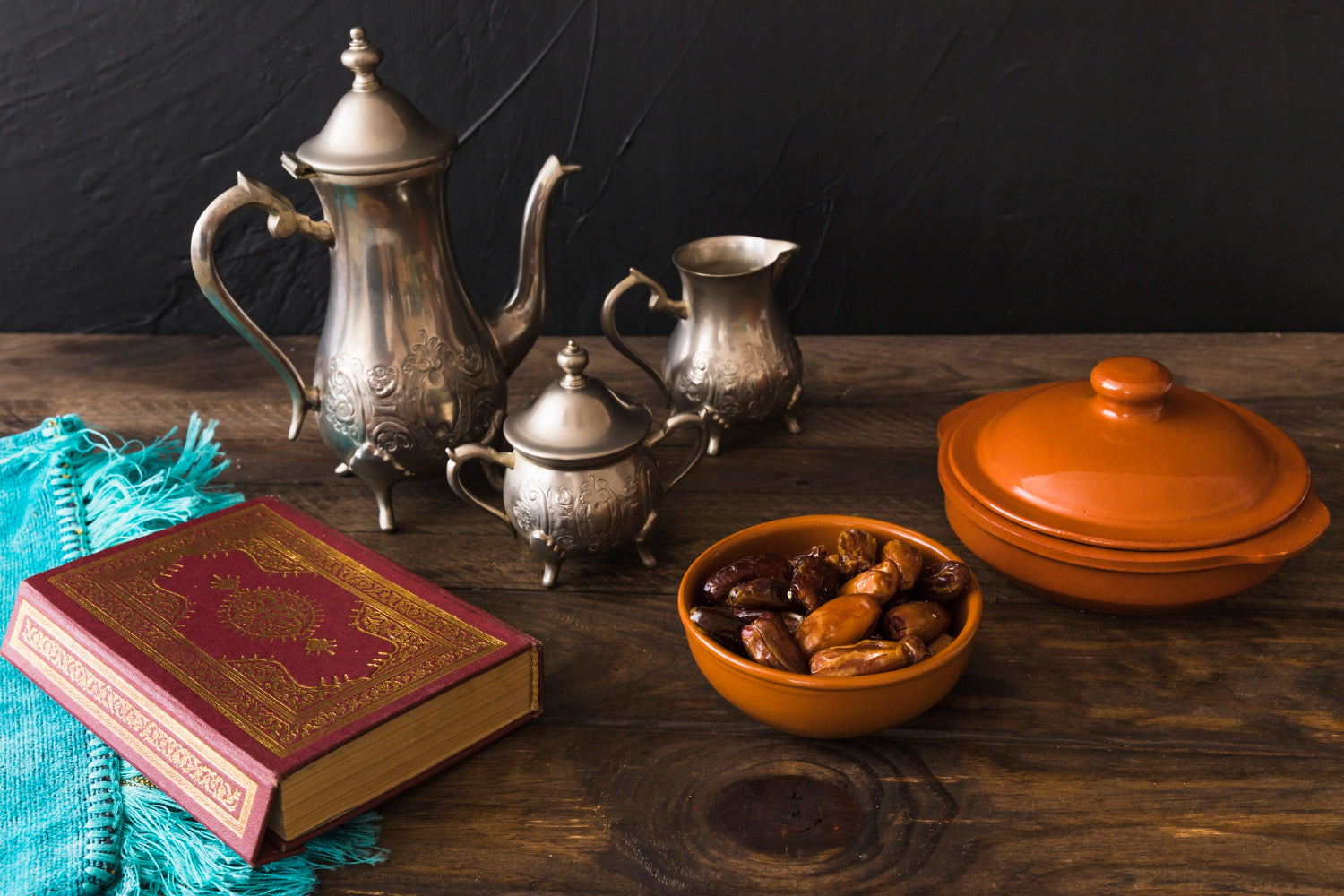Healing Through Faith: The Prophet's Approach to Health and Wellness
Throughout the history of humankind, man had been searching for cures for various types of illness infecting the world. Like most things, we Muslims set the Holy Quran and the Sunnah of the beloved Prophet (PBUH) as the source of guidance in all aspects of life, diseases and its cures being no exception. Through this blog, we would like to provide some information, knowledge and wisdom in dealing with the numerous ailments that afflict us. It's clear that a lot of the struggles we face today come from living overly indulgent lives, combined with a lack of faith and a weakened connection to our Creator.
Throughout the Holy Quran, there are multiple instances where the significance of the Prophet (PBUH) is explicitly mentioned and proved how his guidance is ultimate. For instance, Allah The Almighty expresses to mankind that:
“Indeed, in the Messenger of Allah you have an excellent example for whoever has hope in Allah and the Last Day, and remembers Allah often.” [33:21]
This verse clearly indicated that Prophet Muhammad (PBUH) was sent as a guide, and mercy for all of humankind, and as such was given wisdom by Allah The Almighty that is beneficial to humanity. Allah (SWT) further says in the Quran:
يَـٰٓأَيُّهَا ٱلنَّاسُ قَدْ جَآءَتْكُم مَّوْعِظَةٌۭ مِّن رَّبِّكُمْ وَشِفَآءٌۭ لِّمَا فِى ٱلصُّدُورِ وَهُدًۭى وَرَحْمَةٌۭ لِّلْمُؤْمِنِينَ
“O humanity! Indeed, there has come to you a warning from your Lord, a cure for what is in the hearts, a guide, and a mercy for the believers.”
This verse is further indicative of the fact that the medicine of the prophet (PBUH) is not restricted to spiritual healing alone. In fact, it balances the healing of the soul and the physical body in order to ultimately prepare man for a better life in the Hereafter.
Scientifically, there are three basic rules to medicine: (1) preserving good health, (2) avoiding all commodities that might cause and establishing immunity, and (3) ridding the body of harmful substances. The vague mention of these basic rules can be found in the Quran as well, specially in the context of Hajj, fasting, and ablution. Furthermore, there are also multiple instances where Allah, The Most Forgiving and Merciful, has given the ill leeway to not participate or take a break inorder to prioritize their health, and then complete the particular act of worship once they are better. For example, Allah The Almighty says:
This verse refers to how any person suffering from any kind of ailment while performing the Hajj (pilgrimage), while fasting or making ablution, face no kind of restrictions and have the right to take actions that prioritizes their health. This helps convey a profound message of compassion and understanding. It emphasizes that Allah is merciful and does not burden individuals with obligations that they are unable to fulfill due to their physical limitations.
Similarly, Allah The Almighty has allowed the sick person to break his fast because of illness. He has also permitted the traveler to break the fast in order to protect and preserve one's health and strength while traveling. Traveling involves physical effort and hardship that requires nourishment to sustain the body's energy. This is why the traveler has been given an exemption from fasting so that his body can receive the required nourishment, eliminating the believer for overburdening their body and causing any potential harm to their health.
An example of ridding the body of harmful substances, which has a higher priority, can be the allowance of shaving the head and exposing the scalp. While this act is usually prohibited in the state of Ihram (saral state), during pilgrimage, Allah (SWT) has made it acceptable to allow those suffering from any scalp related illnesses, to shave their hair. Shaving the head and exposing the scalp in these cases removes the harmful substances and thus allows the sick person to get rid of whatever is causing his illness and recover from the condition,
All these instances are a clear indication of a precedent set for every type of precautionary or preventive measure (diet etc.) that protects the body from harmful substances that one consumes or the body produces. In this way, we can see that Allah (SWT) has highlighted the three basic principles of medicine mentioned earlier.
Types of Remedies for physical illnesses
Remedies for physical illnesses can be divided into two categories: instinctual and analytical. Instinctual remedies require no medical intervention and involve natural responses to hunger, thirst, cold, and fatigue. Analytical remedies, on the other hand, require deep thought and analysis, and often requires the expertise of a professional who focuses on resisting and subduing the ailment while moderating the patient's condition. This can often lead to fever, heat, coldness, dryness, or a combination of these symptoms.
At times like this, the expertise of a professional doctor is indeed crucial, However, they are still limited. With their knowledge they are able to identify what helps or harms the body, understand all the commodities that should be avoided, and balance what needs to be increased or decreased to maintain health and treat illness, using remedies, prescribing medication, or/and a proper diet to restore well-being. It is noted that in Islam, the majority of the medicinal findings have already been mentioned and forwarded to the believers through the guidance and advice of the Prophet (PBUH), which undoubtedly is the guidance of Allah (SWT).

Share:
The Spiritual Significance of Friday: Jumu’ah and Its Blessings
Meditation For Muslims